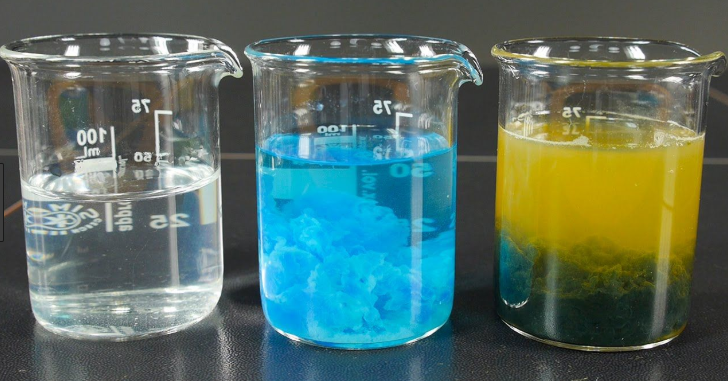Solubility indicates the maximum molar concentration of ions in equilibrium with the solid in a saturated solution. For a salt it is possible to determine the solubility product constant from the solubility, and also the solubility from the solubility product constant. Let's see two examples:

The solubility of calcium sulfate in aqueous solution at 25ºC is 0.2 g of calcium sulfate in 100 mL. What is the value of the solubility product constant?
Solution:
We write the dissociation equation for calcium sulfate:
$CaSO_4(s)\rightleftharpoons Ca^{2+}(aq)+SO_4^{2-}(aq)$
For every $s$ mol/L of salt dissolved, $s$ mol/L of calcium ions and $s$ mol/L of sulfate ions are formed. where s is the solubility of the salt. The calculation of s is carried out passing the g/mL of solution to mol/L.
\begin{equation} s=\frac{0.2\;g\;CaSO_4}{0.1\;L}x\frac{1\;mol\;CaSO_4}{136\;g\;CaSO_4}=0.015\;mol /L \end{equation} Therefore, $[Ca^{2+}]=[SO_4^{2-}]=0.015\;mol/L$ \begin{equation} K_{ps}=[Ca^{ 2+}][SO_4^{2-}]=s\cdot s=s^2=0.015^2=2.3x10^{-4} \end{equation}
In this second example we are going to calculate the solubility of lead iodide from its solubility product constant the $K_{ps}=7.1x10^{-9}$.
Solution:
First we write the solubility equilibrium equation:
$PbI_2(s)\rightleftharpoons Pb^{2+}(aq)+2I^-(aq)$
This equation shows us that for every mole of $PbI_2$ that dissolves, one mole of $Pb^{2+}$ and two moles of $I^-$ are formed. If $s$ moles of $PbI_2$ are dissolved per liter of solution to form a saturated solution, we will have: $[Pb^{2+}]=s$ and $[I^-]=2s$. Taking these concentrations to the solubility product constant: \begin{equation} K_{ps}=[Pb^{2+}][I^-]^2=s\cdot (2s)^2=4s^3= 1.7x10^{-9} \end{equation} Solving $s$ from this last equation; $s=1.2x10^{-3}\;M$
Solubility tells us the maximum amount of salt that can be dissolved. In the case of lead iodide, we can dissolve $1.2x10^{-3}$ moles in approximately one liter of water (note that the molarity is per liter of solution)



